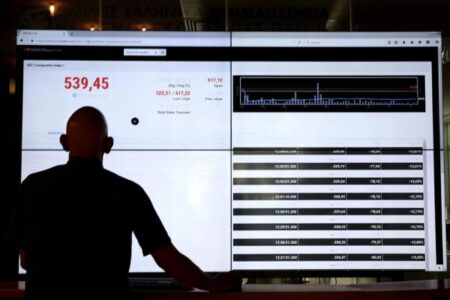This as-told-to essay is based on a transcribed conversation with Amber Atherton, 33, about living in San Francisco, London, and New York as a startup founder. The following has been edited for length and clarity.
I launched my company, Zyper, in 2016 in London. I moved from London to Palo Alto in December 2017 after getting into Y Combinator, a prestigious accelerator program for startup founders.
Before the move, I spent a year raising a seed round and acquiring customers in London. We were building software designed to help brands connect with their top fans.
I’ve lived in the Bay Area, New York, and the UK while building and scaling Zyper.
In 2020, Zyper was acquired by Discord. I joined Discord for two years and lived in San Francisco. Then, in 2023, I joined a venture capital firm called Patron as a partner. We invest pre-seed stage across the gaming and consumer internet space.
I feel truly at home in California. While I’ve loved living in London and NYC, the Bay Area has something special. The Valley is unparalleled as a place to focus, build, and invest in the future.
Y Combinator helped me make connections in the US, but after the program, I decided to move my business to New York
I first moved to Palo Alto in 2017 with two engineers and a product manager from Zyper. It was close to Y Combinator’s office in Mountain View.
I’d grown up between Hong Kong and England, and didn’t know anyone in California, so I was lucky to land in Y Combinator. It gave me a community of founders and friends.
I was struck by how suburban Palo Alto was. You might think it’s a modern metropolis of glass and steel, but it’s actually an American suburb with lawns and one-story houses.
During the program, we had regular coaching, office hours with partners, social events with batch mates, and inspiring guest speakers. It was a supportive and competitive environment.
I remember Y Combinator’s Michael Seibel giving us a talk about why we should stay in the Bay Area after the program, highlighting the ecosystem and talent here. Lots of YC companies are still headquartered in the Bay Area.
In January 2018, we began working with lawyers on a “Delaware flip,” which meant moving our domicile to Delaware to make Zyper more attractive to US investors.
I realized that if we wanted to grow, we needed to be in the US full-time, as there’s a bigger market.
I considered taking Seibel’s advice and staying in the Bay Area, but in the end, we decided to move to New York, which was closer in time zone to the UK.
We still had a team in London but didn’t have anyone living in the Bay Area.
New York was diverse but full of distractions
I moved to New York in June 2018. It was tough going from Palo Alto, a hyper-focused environment, to a 24/7 city with a hundred million things to do.
There’s so much stimulation in the city — theatre, art, museums. I remember being distracted by the endless opportunities to attend parties and dinners.
Meanwhile, San Francisco, where I moved later on, is a tech town. Everyone’s always talking about building businesses, and it’s easier to meet investors and potential hires.
New York has a great founder talent pool and ecosystem, particularly in crypto and AI. As an investor, I know fantastic founders in New York who have no problem dealing with the pace and distractions. After the Bay Area, New York is the next-best market to invest in.
But if you want to be laser-focused without distractions, you can’t beat the Bay Area. About a year into my time in New York, I realized we should probably move back.
We closed our New York and London offices at the end of 2019 and moved our business to San Francisco.
London’s where Zyper started, but the market isn’t as big
Within Europe, the UK is highly regarded as a place for technical talent, and there are many success stories in the fintech space.
A big advantage of the UK is that it has some of the best universities in the world, so there is a lot of great academic talent.
I still visit the UK twice a year, which helps me stay connected with the scene and observe trends in the market. The UK is a tough place to scale a company that isn’t fintech or rooted in academia.
Market size is the most obvious reason. The VC and funding ecosystem is bigger in the US, particularly in Silicon Valley, plus there’s a large exceptional talent pool, so there’s a quicker trajectory from raising a pre-seed round to hiring the people you need to reach milestones.
There’s also a cultural appetite for risk in the US that isn’t as strong in the UK. The very DNA of America is the American dream. Particularly in the Valley, there’s a propensity for very quickly backing “zero-to-one ideas” and creating something entirely new.
When I lived in the UK, I felt the pace was slower, but I think the tech ecosystem has improved. There are more angel investors and VC funds now, but the talent pool in the UK is still smaller than in the US.
I think Brexit was a shame because it used to be easier to bring European tech employees over to work in UK.
I can’t see myself making a full-time return to the UK, but you never know what the future holds.
Silicon Valley is special, and I plan to stay
I moved Zyper to San Francisco right before the pandemic hit.
During the pandemic, there was a time when some people left the city for Miami and Austin, but I’ve since seen positive signs of recovery and an influx of founders back to the Bay. AI companies like Nvidia are based here and driving innovation in the next computing wave.
The next Silicon Valley is Silicon Valley.
There are other emerging markets, like Korea, Brazil, and China, but I think there’s something very special about the ecosystem and history of Silicon Valley. The largest software companies were built here.
The only red flag for me would be politics getting in the way. It’s good to have an independent body regulating AI for consumer protection, but if politicians overregulate or overtax the way AI is working, it might slow down technological advancement and potentially hinder economic growth.
I think I’ll live here for the rest of my life. If you are obsessed with building, investing, and the future of consumer behavior, Silicon Valley is irresistible.
Read the full article here















